
Find Help
More Items From Ergsy search
-

Hip replacement
Relevance: 100%
-

What is a hip replacement?
Relevance: 96%
-

Total Hip Replacement
Relevance: 94%
-

Total hip replacement
Relevance: 94%
-

Do I need a Hip Replacement?
Relevance: 94%
-

Total hip replacement at Northumbria Healthcare
Relevance: 85%
-

Can both hips be replaced at the same time?
Relevance: 84%
-

What is minimally invasive hip replacement surgery?
Relevance: 84%
-

What is the recovery time for a hip replacement?
Relevance: 83%
-
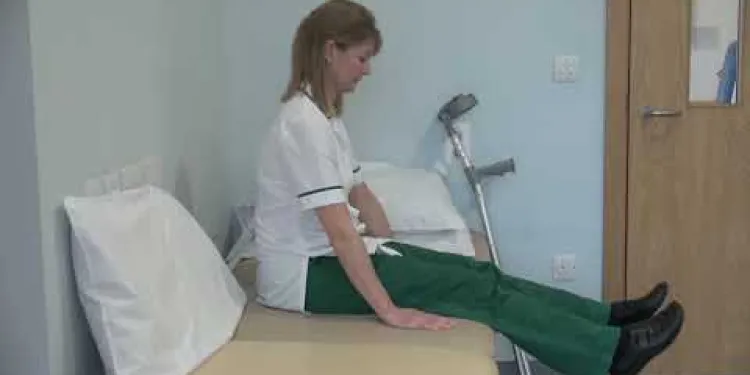
Hip replacement - getting into bed
Relevance: 83%
-

What are the risks associated with hip replacement surgery?
Relevance: 82%
-

How long does a hip replacement surgery take?
Relevance: 80%
-

Will I need physical therapy after a hip replacement?
Relevance: 80%
-

How much does hip replacement surgery cost in the UK?
Relevance: 79%
-

How do I prepare for hip replacement surgery?
Relevance: 77%
-

What type of anaesthesia is used during hip replacement surgery?
Relevance: 76%
-

How long does it take to recover from a hip replacement operation?
Relevance: 72%
-
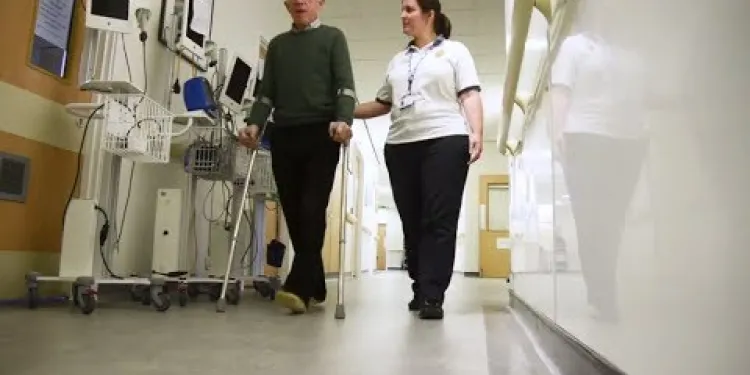
Having a hip replacement - Part Two: Recovery
Relevance: 70%
-

Osteoarthritis of the Hip
Relevance: 67%
-

Same day discharge for NHS Golden Jubilee’s hip replacement patients
Relevance: 66%
-

Your anaesthetic choices for your planned hip or knee replacement surgery at the RUH.
Relevance: 64%
-
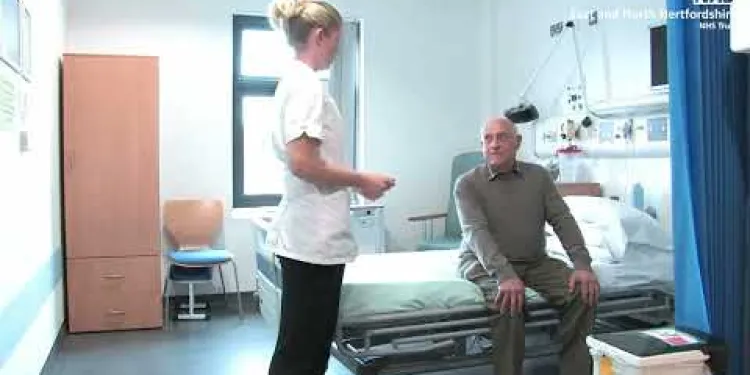
A journey to hip surgery
Relevance: 63%
-

Osteoarthritis of the Hip
Relevance: 62%
-
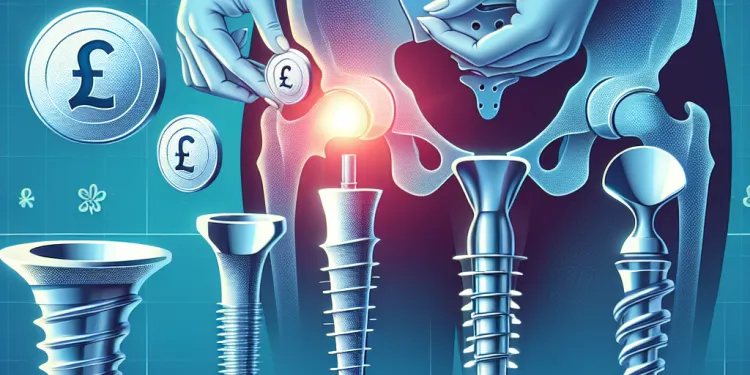
Are there different types of hip implants?
Relevance: 62%
-

How long do hip replacement implants last?
Relevance: 61%
-
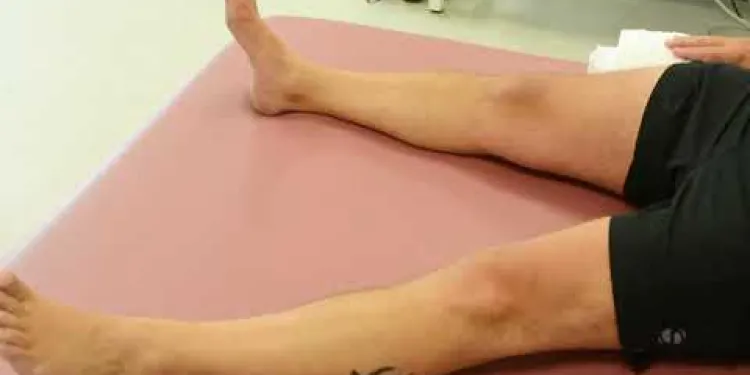
Joint School - Hip Exercises
Relevance: 57%
-

Will I be able to return to normal activities after hip replacement?
Relevance: 56%
-
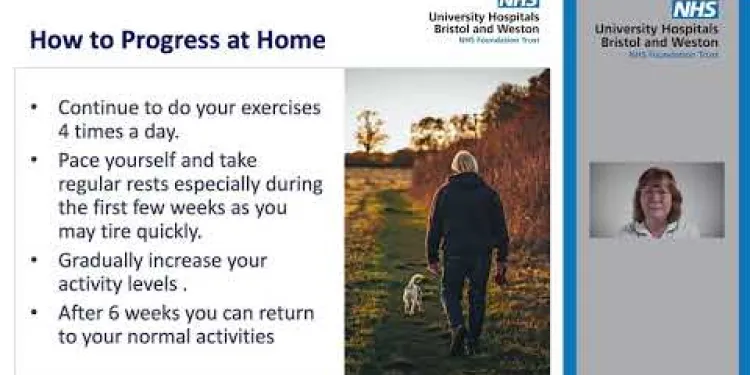
Enhanced Recovery - Hip
Relevance: 48%
-
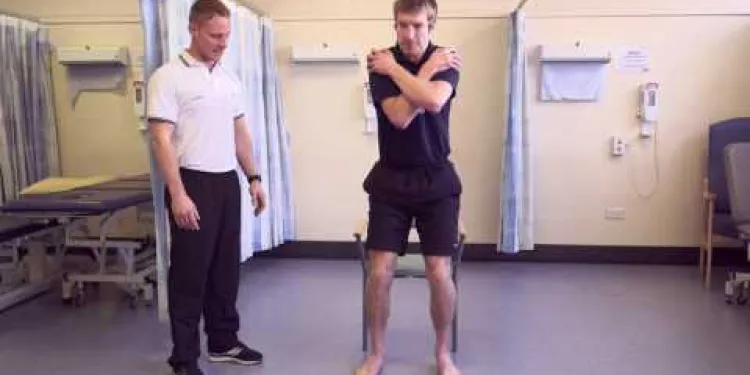
Exercises to help your lateral hip pain
Relevance: 48%
-

What can I expect during the first few weeks after hip replacement surgery?
Relevance: 46%
-
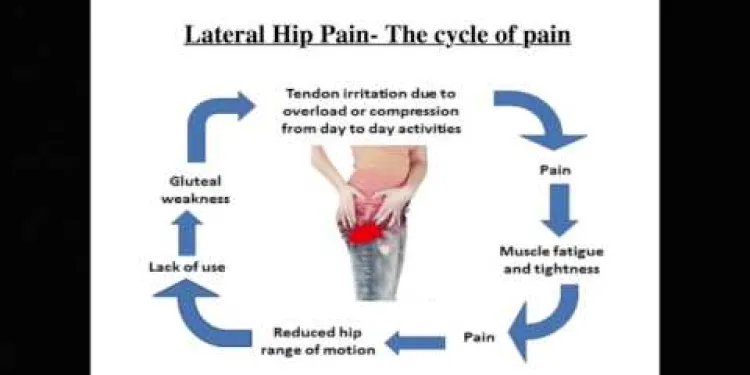
Advice - How to manage your lateral hip pain
Relevance: 46%
-

Who is a candidate for a hip replacement?
Relevance: 46%
-

Knee replacement
Relevance: 45%
-
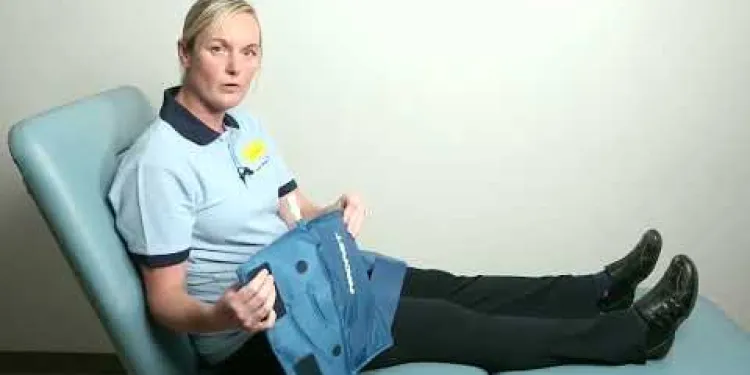
Total Knee Replacement
Relevance: 41%
-

Total knee replacement
Relevance: 41%
-

Is hormone replacement therapy safe for menopause masking?
Relevance: 32%
-

Would a wealth tax replace other taxes in the UK?
Relevance: 32%
-

Can home colorectal cancer tests replace a colonoscopy?
Relevance: 29%
-

Will the digital driving license replace the physical card?
Relevance: 29%
-

Can hormone replacement therapy (HRT) impact dementia risk?
Relevance: 28%
Understanding Hip Replacement
Hip replacement, or hip arthroplasty, is a surgical procedure where a damaged hip joint is replaced with a prosthesis. It is often recommended for patients experiencing significant pain or disability from hip joint damage. For many, it is considered after other treatment options, like physiotherapy or medication, have not delivered adequate relief.
Assessing Your Need for Surgery
The decision to proceed with a hip replacement depends on several factors. Primarily, if you experience persistent pain that disrupts daily activities such as walking, climbing stairs, or even resting, it might be time to consider surgery. Limited range of motion and increased stiffness that medication or physical therapy cannot improve are also signals.
Consulting with Healthcare Providers
If you suspect a hip replacement may be necessary, consulting with your GP is an essential first step. They may refer you to a specialist—often an orthopaedic surgeon—who will assess your condition through physical examination and imaging tests such as X-rays or MRIs. This evaluation helps determine the extent of joint damage and if surgery is the best option.
Factors Influencing the Decision
A doctor will consider various factors before recommending hip surgery. These typically include the severity of osteoarthritis or hip joint damage, your overall health, age, activity level, and lifestyle expectations. Each patient has unique complications, so a personalised approach ensures the most effective outcome.
Exploring Other Treatment Options
Before surgery, there are alternative treatments to explore. These may involve pain management with medications, dietary adjustments for weight management, physical fitness programs to strengthen supporting muscles, or assistive devices like canes or walkers. If these do not provide adequate relief, surgery might be the next consideration.
Understanding Potential Benefits and Risks
While hip replacement surgery has a high success rate, it is crucial to be aware of the potential benefits and risks. The outcomes often include significant pain relief, improved mobility, and enhanced quality of life. However, risks can include infection, blood clots, or prosthesis wear over time. Understanding these factors and discussing them with your surgeon is critical to making an informed decision.
NHS Pathway to Surgery
In the UK, hip replacement procedures can be accessed through the NHS or privately. NHS patients usually follow a structured pathway that includes comprehensive pre-surgery assessment, followed by post-operative care and rehabilitation. The goal is to ensure the best possible recovery and long-term joint health.
Final Considerations
Determining the need for a hip replacement requires careful consideration of personal circumstances and professional medical advice. Taking an active role in understanding the implications and engaging with healthcare providers ensures the best outcome for your hip health and overall wellbeing.
What is Hip Replacement?
Hip replacement is an operation. The bad hip joint is swapped with a new one, called a prosthesis. This is usually needed when the hip hurts a lot, and nothing else helps. Doctors might try exercises or medicine first.
Do I Need Hip Surgery?
You might need hip surgery if you have pain all the time. If it stops you from doing things like walking or climbing stairs, it might be time to think about surgery. If your hip feels stiff and exercises do not help, surgery could be needed.
Talk to Your Doctor
If you think you need a hip replacement, talk to your doctor (GP). They might send you to a specialist called an orthopaedic surgeon. The surgeon will check your hip and may take pictures like X-rays. This helps them see how bad the hip is and if surgery can help.
Things Doctors Think About
Before saying you need hip surgery, doctors look at many things. They check how bad the damage is, how healthy you are, your age, and what you like to do every day. Every person is different, so doctors make a special plan for each one.
Other Treatments to Try First
Before thinking about surgery, try other treatments. These include taking medicine to stop pain, eating healthy to keep a good weight, and doing exercises to make muscles stronger. Canes or walkers can help too. If these do not work, surgery might be next.
Benefits and Risks of Surgery
Many people feel much better after hip surgery. They have less pain and can move better. But there are risks too, like infections or blood clots. The new hip might wear out after some time. Talk to your surgeon about these before deciding.
Getting Surgery Through the NHS
In the UK, you can get hip surgery through the NHS or pay privately. The NHS has a clear plan. You will have checks before surgery and care after. This helps you get better and keep your hip healthy.
Think Carefully
Deciding about hip replacement is important. Think about your life and health. Talk to doctors and ask questions. This will help you make the best choice for your hip and how you feel overall.
Frequently Asked Questions
What symptoms indicate that I might need a hip replacement?
Common symptoms include persistent hip pain, limited mobility, stiffness, and difficulty with daily activities such as walking or climbing stairs.
How do doctors determine if a hip replacement is necessary?
Doctors typically perform a physical examination, review your medical history, and may order imaging tests such as X-rays or MRI to assess the extent of hip joint damage.
Are there non-surgical treatments for hip pain?
Yes, non-surgical options include physical therapy, pain medications, lifestyle changes, and steroid injections, which may provide temporary relief.
What conditions commonly lead to hip replacement surgery?
Osteoarthritis, rheumatoid arthritis, avascular necrosis, and hip fractures are common conditions that may require hip replacement surgery.
How long does a hip replacement last?
Modern hip replacements can last 15-20 years or more, but the lifespan can vary depending on several factors including the patient's activity level and overall health.
What are the risks associated with hip replacement surgery?
Risks can include infection, blood clots, dislocation, loosening of the implant, and fracture, although these are relatively rare.
How can I prepare for hip replacement surgery?
Preparation may involve pre-surgery assessments, exercises to strengthen the body, arranging for post-surgery care, and following your surgeon's instructions.
What is the recovery time for hip replacement surgery?
Recovery can vary, but most patients return to normal activities within 3 to 6 months, with some improvements continuing for up to a year.
Is there an age limit for hip replacement surgery?
There is no strict age limit; decisions are based on individual health, level of pain, and overall function rather than age alone.
Will hip replacement surgery allow me to return to all my previous activities?
Many people can return to low-impact activities, but high-impact sports and activities might need to be limited to avoid excessive wear on the joint.
How does obesity affect the decision to have hip replacement surgery?
Obesity can increase surgical risks and complicate recovery, but it does not necessarily preclude hip replacement. Weight loss may be recommended before surgery.
What type of hip replacement is best for me?
The choice of hip replacement type depends on factors like age, activity level, and bone quality, and should be discussed with your orthopedic surgeon.
What role does physical therapy play after hip replacement surgery?
Physical therapy is crucial for strengthening muscles, improving flexibility, and ensuring a successful recovery after hip replacement surgery.
Can I have both hips replaced at the same time?
Bilateral hip replacement is possible, but it depends on the individual's health and the surgeon's recommendation.
Are there any alternatives to hip replacement surgery?
Alternatives may include arthroscopy, core decompression, or osteotomy, but these depend on the patient's specific condition and severity.
What kind of anesthesia is used during hip replacement surgery?
Both general and regional anesthesia options are available, and the choice depends on medical considerations and patient and surgeon preferences.
How long should I expect to stay in the hospital after hip replacement surgery?
Hospital stays typically range from 1 to 3 days, depending on the patient's recovery progress and any underlying health conditions.
What is minimally invasive hip replacement surgery?
Minimally invasive hip replacement uses smaller incisions, leading to less tissue damage, potentially reducing pain and shortening recovery time.
What should I expect during the first few weeks after hip replacement surgery?
Initial recovery focuses on pain management, early mobilization with aids, and gradual reintroduction of regular activities under guidance.
How can I make my home safer for recovery after a hip replacement?
Remove tripping hazards, install grab bars, use raised toilet seats, and arrange furniture for easy movement to create a safe recovery environment.
How do I know if I need a new hip?
If your hip hurts a lot, you might need a new hip.
Look out for these signs:
- Your hip hurts even when you are resting.
- It is hard to walk or stand.
- Your hip feels stiff and won't move well.
- Pain keeps you awake at night.
If you have these problems, tell a grown-up or a doctor. They can help you.
Tools that can help:
- Ask someone to explain words you don’t understand.
- Use pictures to see what the hip looks like.
- Watch videos about hip problems.
Some common signs are hip pain that does not go away, trouble moving, feeling stiff, and finding it hard to do things like walking or going up stairs.
How do doctors know if you need a new hip?
Doctors will look at your body, ask about your health in the past, and might use special picture tests like X-rays or MRI to see how damaged your hip joint is.
Can hip pain be treated without surgery?
Yes, you can try other ways to feel better when your hip hurts.
Here are some things that might help:
- Exercise: Gentle stretching and walking can help.
- Physical Therapy: A therapist can show you moves to ease pain.
- Medications: Some pills can help with pain and swelling.
- Rest: Take breaks and avoid things that hurt your hip.
- Heat and Ice: Warm packs and ice can soothe pain.
- Supportive Tools: Use a cane or crutches to move easier.
Yes, there are ways to help without surgery. You can try:
- Doing special exercises with a therapist (this is called physical therapy).
- Taking medicine that makes pain go away.
- Changing some parts of how you live to feel better.
- Getting a shot that helps with pain for a little while.
These can help you feel better for some time.
What problems often need hip replacement surgery?
Sometimes, our hip joint can get hurt or sick. This can cause a lot of pain and make it hard to move. Here are some common reasons why doctors say you need a new hip:
- Arthritis: This is when your joints become swollen and sore.
- Injury: If you fall or get hurt, your hip might break.
- Wear and tear: Over time, your hip joint can get worn out from lots of use.
When these things happen, a doctor might say you need hip replacement surgery to feel better.
Helpful Tips: Talk with your doctor. They can help explain things in a way that's easy to understand.
Some common reasons people need new hip surgery are:
- Osteoarthritis: This is when the hip joint hurts because of wear and tear.
- Rheumatoid arthritis: This is when your body attacks the hip joint, making it sore and swollen.
- Avascular necrosis: This is when the hip bone doesn’t get enough blood and starts to break down.
- Hip fractures: This is when you break your hip bone, often from a fall.
Tools like text-to-speech can help with reading. It's okay to ask someone to explain words you don't understand.
How long does a new hip last?
If you get a new hip, it might last a very long time. Most new hips work well for 10 to 20 years.
To help it last longer, you can:
- Stay at a healthy weight.
- Do gentle exercises like walking or swimming.
- Talk to your doctor if you feel pain.
If you have questions, you can ask a doctor or nurse to help you understand more.
New hip replacements can last 15-20 years or even longer. How long they last can change based on how much you move and how healthy you are.
What can go wrong with hip replacement surgery?
Hip replacement surgery can help, but there are some things that might go wrong. Here are a few:
- Pain or swelling: Sometimes your hip might hurt or swell after the surgery.
- Infection: Germs might get into your hip and make it sick.
- Hip may come loose: The new hip might not stay in place.
- Blood clots: Blood can get thick and cause clots, which are not good.
- Leg length changes: One leg might end up being longer or shorter than the other.
Talk to your doctor if you are worried. Ask a friend or family member to help explain things. Drawing pictures or using simple words can also help you understand.
There are some things that can go wrong:
- You could get an infection. This is when germs make you sick.
- You could get blood clots. This is when your blood gets thick and clumps together.
- Your implant might move out of place. This is called dislocation.
- The implant could become loose. This means it doesn’t stay in place.
- The bone might break. This is called a fracture.
But don't worry, these things do not happen very often.
How to get ready for hip surgery?
Here are some simple steps to help you get ready:
- Talk to your doctor. Ask any questions you have.
- Write a list of things to bring to the hospital. Like clothes, toothbrush, and books.
- Make your home safe. Move things you might trip over.
- Ask a friend or family member to help you after surgery.
- Do some light exercises if your doctor says it's okay.
These steps will help you feel ready and safe for your surgery.
Getting ready for surgery means doing some important things. You might have a health check before surgery. It's good to do exercises to make your body strong. Plan for help after surgery, and listen to what your doctor says.
How long does it take to get better after hip surgery?
Getting better can take some time. Most people feel good and can do their normal things again in 3 to 6 months. Some people might keep getting better for up to a year.
Can someone too young or too old have hip surgery?
Hip surgery can help people who have pain or trouble moving their hip. There is no fixed age limit for this surgery. Doctors look at how much help the surgery can be for the person.
If you are worried, talk to a doctor. They can tell you if hip surgery is right for you.
Helpful tips:
- Ask someone to help you understand what the doctor says.
- Write down your questions before you see the doctor.
- Use pictures or videos to learn more about hip surgery.
There is no set age for this. Doctors look at how healthy you are, how much pain you have, and how well you can do things. They don't decide just because of your age.
Can I do my old activities after hip surgery?
People can often go back to doing gentle exercises. But they might need to do less of activities like jumping or running. This helps to take care of their joints.
How does being very overweight change the choice to have hip surgery?
When someone is very overweight, it can affect their body and health. This might change if they decide to have hip surgery.
It’s good to talk to a doctor about the best choice for their body. The doctor can help understand what’s best and help make the right decision.
Pictures or models can help explain the surgery. A family member or friend might also help understand the decision.
Using simple language or reading aloud can make it easier to understand. You can also write down questions to ask the doctor.
Being too heavy can make surgery more risky and harder to heal from. But, it doesn't always mean you can't have hip surgery. Doctors might suggest losing weight before the surgery.
What kind of hip replacement is good for me?
There are different types of hip replacements. Your doctor can help you choose the best one. Here are some tips:
- Talk to your doctor. They know what might be best for you.
- Ask questions if you don’t understand. It’s okay to ask many questions.
- You can bring a family member or friend to help you talk with the doctor.
- Look at pictures or videos of how hip replacements work. This can help you see what happens.
Remember, your doctor is there to help you feel better.
When you need a new hip, there are different types to choose from. The right one for you depends on things like how old you are, how active you are, and how strong your bones are. It’s important to talk to your doctor about which one is best for you.
How does exercise help after getting a new hip?
After you get a new hip, exercise helps you get better.
- It makes your new hip strong.
- It helps you walk and move without pain.
- A therapist shows you safe exercises.
- You can use videos to see how the exercises are done.
- A friend or family member can help and support you.
Exercise is very important to help you feel good and move well after surgery.
Physical therapy is very important. It helps make your muscles strong, makes your body more bendy, and helps you get better after hip surgery.
Can I get both hips fixed at once?
You can have both hips replaced, but it depends on how healthy you are and what your doctor thinks is best for you.
Other Options Instead of Hip Replacement Surgery
Are there different ways to help a sore hip without surgery? Let's find out some easy ideas:
- Exercises: Moving and stretching can make your hip feel better. A special doctor called a physiotherapist can show you how.
- Medicine: Pills or creams can help with the pain. Ask a doctor which ones are safe for you.
- Walking aids: Using a stick or walker can help take weight off your sore hip.
- Injections: Doctors might be able to put medicine straight into your hip. This can make the pain go away for a while.
Always talk to a doctor before trying something new for your hip pain. They will help you decide what is best for you.
There are different ways the doctor might help. These could be:
- Using a small camera to look inside the joint (arthroscopy)
- Taking pressure off the bone to help it heal (core decompression)
- Cutting and reshaping the bone (osteotomy)
What the doctor chooses depends on how much help the patient needs and what their problem is.
If you find this hard to read, you can try using tools like a text reader, or ask someone to read it with you.
What medicine is used to stop pain during hip surgery?
You can choose between two types of medicine to help you not feel pain during surgery. One type is called general anesthesia, and it makes you sleep during the operation. The other type is called regional anesthesia, and it numbs just the part of your body where the surgery is happening.
The doctor will help you decide which one is best. It depends on your health and what you and the doctor think is best for you.
How many days will I stay in the hospital after a new hip?
After you get a new hip, you might stay in the hospital for 2 to 4 days. Doctors and nurses will help you get better. They want to make sure you're safe to go home.
Here are some tips to help:
- Ask questions if you're not sure.
- Use a calendar to mark the days you stay.
Most people stay in the hospital for 1 to 3 days. This depends on how well they are getting better and if they have any other health problems.
What is minimally invasive hip replacement surgery?
Minimally invasive hip replacement surgery is a way doctors fix a bad hip with a small cut. It helps you feel better and move easily.
Tools to help understand:
- Pictures and videos: Looking at pictures or videos can help you see what happens in the surgery.
- Talk with your doctor: Asking your doctor questions can help you understand more.
- Support person: Have someone with you to help explain things.
A small cut is made for hip surgery. This means less harm to the body. It can hurt less and you may get better faster.
What happens in the first weeks after you have hip surgery?
After you get a new hip, you might wonder what will happen next.
Here are some things to expect:
- You might feel sore and tired.
- You will need to rest and take it easy.
- Some people use crutches or a walker to help them walk.
- You will see a doctor for check-ups.
- You will do exercises to get stronger.
Ways to help you:
- Ask a family member or friend to help you.
- Use a cushion or pillow to stay comfy.
- Make sure your home is safe and easy to move around.
First, you rest and take medicine to feel better. Then, you start moving a little bit with the help of crutches or a walker. Slowly, you go back to doing your usual activities with help from your doctor or therapist.
How can I make my home safe after a hip replacement?
Here are some simple steps to help:
- Keep floors clear of clutter and loose rugs.
- Use a chair with arms to help you stand up.
- Put a raised seat on the toilet.
- Use a shower chair to sit while bathing.
- Make sure halls and rooms have good lighting.
Ask a friend or family member for help if you need it. Occupational therapists can also give advice to make your home safer.
Make your home safe by doing these things:
- Take away things you might trip over.
- Put grab bars in the bathroom to hold onto.
- Use toilet seats that are higher up.
- Move furniture so you can walk around easily.
Useful Links
This website offers general information and is not a substitute for professional advice.
Always seek guidance from qualified professionals.
If you have any medical concerns or need urgent help, contact a healthcare professional or emergency services immediately.
Some of this content was generated with AI assistance. We’ve done our best to keep it accurate, helpful, and human-friendly.
- Ergsy carfully checks the information in the videos we provide here.
- Videos shown by Youtube after a video has completed, have NOT been reviewed by ERGSY.
- To view, click the arrow in centre of video.
- Most of the videos you find here will have subtitles and/or closed captions available.
- You may need to turn these on, and choose your preferred language.
- Go to the video you'd like to watch.
- If closed captions (CC) are available, settings will be visible on the bottom right of the video player.
- To turn on Captions, click settings .
- To turn off Captions, click settings again.
More Items From Ergsy search
-

Hip replacement
Relevance: 100%
-

What is a hip replacement?
Relevance: 96%
-

Total Hip Replacement
Relevance: 94%
-

Total hip replacement
Relevance: 94%
-

Do I need a Hip Replacement?
Relevance: 94%
-

Total hip replacement at Northumbria Healthcare
Relevance: 85%
-

Can both hips be replaced at the same time?
Relevance: 84%
-

What is minimally invasive hip replacement surgery?
Relevance: 84%
-

What is the recovery time for a hip replacement?
Relevance: 83%
-

Hip replacement - getting into bed
Relevance: 83%
-

What are the risks associated with hip replacement surgery?
Relevance: 82%
-

How long does a hip replacement surgery take?
Relevance: 80%
-

Will I need physical therapy after a hip replacement?
Relevance: 80%
-

How much does hip replacement surgery cost in the UK?
Relevance: 79%
-

How do I prepare for hip replacement surgery?
Relevance: 77%
-

What type of anaesthesia is used during hip replacement surgery?
Relevance: 76%
-

How long does it take to recover from a hip replacement operation?
Relevance: 72%
-

Having a hip replacement - Part Two: Recovery
Relevance: 70%
-

Osteoarthritis of the Hip
Relevance: 67%
-

Same day discharge for NHS Golden Jubilee’s hip replacement patients
Relevance: 66%
-

Your anaesthetic choices for your planned hip or knee replacement surgery at the RUH.
Relevance: 64%
-

A journey to hip surgery
Relevance: 63%
-

Osteoarthritis of the Hip
Relevance: 62%
-

Are there different types of hip implants?
Relevance: 62%
-

How long do hip replacement implants last?
Relevance: 61%
-

Joint School - Hip Exercises
Relevance: 57%
-

Will I be able to return to normal activities after hip replacement?
Relevance: 56%
-

Enhanced Recovery - Hip
Relevance: 48%
-

Exercises to help your lateral hip pain
Relevance: 48%
-

What can I expect during the first few weeks after hip replacement surgery?
Relevance: 46%
-

Advice - How to manage your lateral hip pain
Relevance: 46%
-

Who is a candidate for a hip replacement?
Relevance: 46%
-

Knee replacement
Relevance: 45%
-

Total Knee Replacement
Relevance: 41%
-

Total knee replacement
Relevance: 41%
-

Is hormone replacement therapy safe for menopause masking?
Relevance: 32%
-

Would a wealth tax replace other taxes in the UK?
Relevance: 32%
-

Can home colorectal cancer tests replace a colonoscopy?
Relevance: 29%
-

Will the digital driving license replace the physical card?
Relevance: 29%
-

Can hormone replacement therapy (HRT) impact dementia risk?
Relevance: 28%


